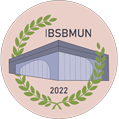The trial of Omar al-Bashir, former president of Sudan began its second day as all events do in 2022 – with a sudden, serious turn, when the Prosecution brought to the Presidency entirely ‘new’ evidence they had discovered: an article published in 2008. In light of this, the ICC swung rapidly to confirming and officialising the charges of genocide in their stating that the Government of Sudan aggreed to harm specific groups of Sudan’s population despite no resistance against military moves the government made. This conviction once and for all proves that the intent of the Sudanese government was to harm rather than protect its people. The government of Sudan even appeared to have made worse than zero efforts in protecting the people and the nation of Sudan – on the contrary, they bombed civilian structures and businesses, destroying many residences belonging to the people of Sudan.
The Defence responded to the claims and arguments presented by the Prosecution by saying that these attacks were an act of self defence, because in the midst of instability ‘anyone’ would try to prevent and terminate conflict by ‘all means’: a term which apparently means the killing of innocent people. Even if the government did indeed supply weapons to the paramilitary Janjaweed groups, the Defence claimed, it was only for self defence purposes and the weapons were only meant to help suppress groups that were causing instability in Sudan; the government is ‘in no control of what Janjaweed [paramilitaries] says, thinks, or acts’.
The Defence then went on claiming that a systematic attack cannot be proven to be genocide, and that the prosecution is ‘not fully aware’ of the matters happening in Sudan. The Defence closed its article by explicitly stating that Omar Al-Bashir’s name was not mentioned in the 2008 article presented. However, the Prosecution rebuttled to the first argument, saying that if a leader finds themselves under pressure, they ought to step down and not attack innocent civilians. The Prosecution also went on to mention that they believe Omar Al-Bashir can in no way be fully innocent, claiming the Janjaweed’s allegiance to the Sudanese government as proof. ‘This [alliance] only happens if the president is called a dictator’, the Prosecution stated. Another point that ought to be mentioned is the fact that innocent protestors were allegedly shot even though they did not oppose any resistance, and many villages were harmed even though protesters were not present, both violations claimed to have been committed by the militia.
The Prosecution also stressed at length that more than 300,000 non-Arab deaths have been recorded by UN officials, and more than 2 million non-Arab and Sudanese people have been displaced by the so-called collaboration between the Janjaweed militias and Sudanese government officials. An issue that was also not fully addressed by the Defence would be the testimonies of the victims that were captured during various attacks. The majority of these recall rape, torture, and displacement. The Prosecution also wished to raise more awareness to the 1994 non-Arab ethnic groups of Sudan that became extinct allegedly due to the fact that their race was not Arab, something that appeared to displease Omar Al-Bashir when he gave the apparent orders for these people to be exterminated.
The Prosecution moved on to talking about Masalit ethnic groups that have been claimed to be killed and massacred by what evidence compelled the Court to suspect Omar Al-Bashir’s involvement, once again stressing the claim that the Militia was under the direct authority of the Sudanese government. Omar Al-Bashir, as head of state, was thus the prime suspect for these allegations. ‘Let’s bring justice’ numbered amongst the statements made by the Prosecution.
The last and final rebuttal is the response of the Defence to the alleged arguments and claims that the Prosecution made. The Defence started off by pointing out the fact that Omar Al-Bashir, though viewed as guilty by many, was not arrested by Chad, Jordan, or South Africa, and he was even tried by the latter and was officially found not guilty – granting him protection under res judicata. The Defence then went on stating that the victims and their testimonies could not be accurate, as they apparently could not even distinguish in their testimony the badges of their attackers, thereby suggesting that the victims couldn’t have remembered if the men that they were captured by were truly part of the Sudanese armed forces.
The Defence decided to quickly change their tactics, turning to attack the Prosecution by saying that only the African leaders who are ‘weak and insignificant’ are charged, and that the powerful leaders of countries such as France and Germany, though the crimes that those leaders have committed are ‘not even measurable with those that have brought Omar Al-Bashir to be tried’ by the ICC. The Defence then stated that the Court should be making decisions to benefit the people and nations of countries, not their leaders, closing the speech with the quote ‘Make the decision for the people of Sudan’
By Ecaterina Botan, Al-Jazeera journalist

